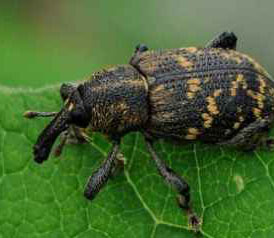
What is the Tree Health and Plant Biosecurity Initiative?
Trees make a huge impact on our rural and urban landscapes and contribute to a vital part of our heritage, rural economy and well-being. Preserving their health is especially important as the environment changes. In the last few years, several new pests and pathogens have emerged as significant risks to the UK’s woodlands, commercial forests and urban trees. Diseases such as acute oak decline and red pine needle blight have become established in the UK, and the outbreak of ash dieback at the end of 2012 illustrates how rapidly new diseases can take hold, and the scale of the threat they can pose to trees. An increase in trade in plants and plant products has contributed to new pests and diseases entering the UK that are capable of causing serious damage. Climate change may also be increasing the risk of these pests and diseases establishing and spreading. There is a range of threats on the horizon.
What does it aim to do?
To generate natural and social scientific knowledge to inform the development of innovative ways of addressing current and emerging threats to trees and woodland ecosystems from pathogens and pests·
- To support the future health and resilience of trees, woodlands and their associated ecosystems
- To facilitate collaboration between specialists in tree or forest research, and leading-edge scientists from the wider natural, biological, social, economic or other relevant research communities
- To encourage and make the best use of interdisciplinary and systems approaches, and improve the impact and integration of social research and economics in this area
The research will address knowledge gaps identified by Defra’s Tree Health and Plant Biosecurity Expert Task Force and the objectives of the joint Defra/Forestry Commission ‘Tree Health and Plant Biosecurity Action Plan’. The projects will also ensure that the UK has increased research capacity in these areas. Outputs will also benefit, among others, land managers, foresters, conservation charities and community woodland advisers.
Tree Health and Plant Biosecurity Expert Taskforce
A number of insects pose a threat to UK trees and plants biosecurity. The Tree Health and Plant Biosecurity Expert Taskforce set up by the government recently recommended that the UK develops and implements ways to predict, monitor and control the spread of pests.
BIPESCO is an interdisciplinary project that will use botanicals and biocontrol with entomopathogenic fungi (EPF), fungi which kill or seriously disable insects, to kill and control insect pests that pose a threat to UK trees. BIPESCO will develop these natural alternatives to conventional chemical pesticides, of which usage is being severely restricted.
The aim of BIPESCO is to identify the strains of EPF that are most pathogenic to current and emergent pest species to utilise an efficient control, alongside botanicals that attract or repel target pests. The researchers will use botanicals to concentrate the pests and expose them to EPF and other agents in “lure and kill” and “stress and kill” strategies, increasing knowledge of the underlying mechanisms involved in control. BIPESCO’s outputs will offer environmentally friendly, sustainable methods of pest control, benefitting many sectors directly and indirectly.
Funders: BBSRC, Defra, NERC, ESRC, Scottish Government, Forestry Commission
Project partnerships
Professor Tariq Butt of Swansea University will be leading the initiative to look at Biological pest control of insect pests that threaten tree health. This project is in partnership with Robert Weaver, FERA and Dr Roger Moore, Forest Research and Industry partners, Fargro, Maelor Nurseries, Sentomol, Tilhill, Myco Solutions, Bord na Mona and Greenerpol and Lisk and Jones.



